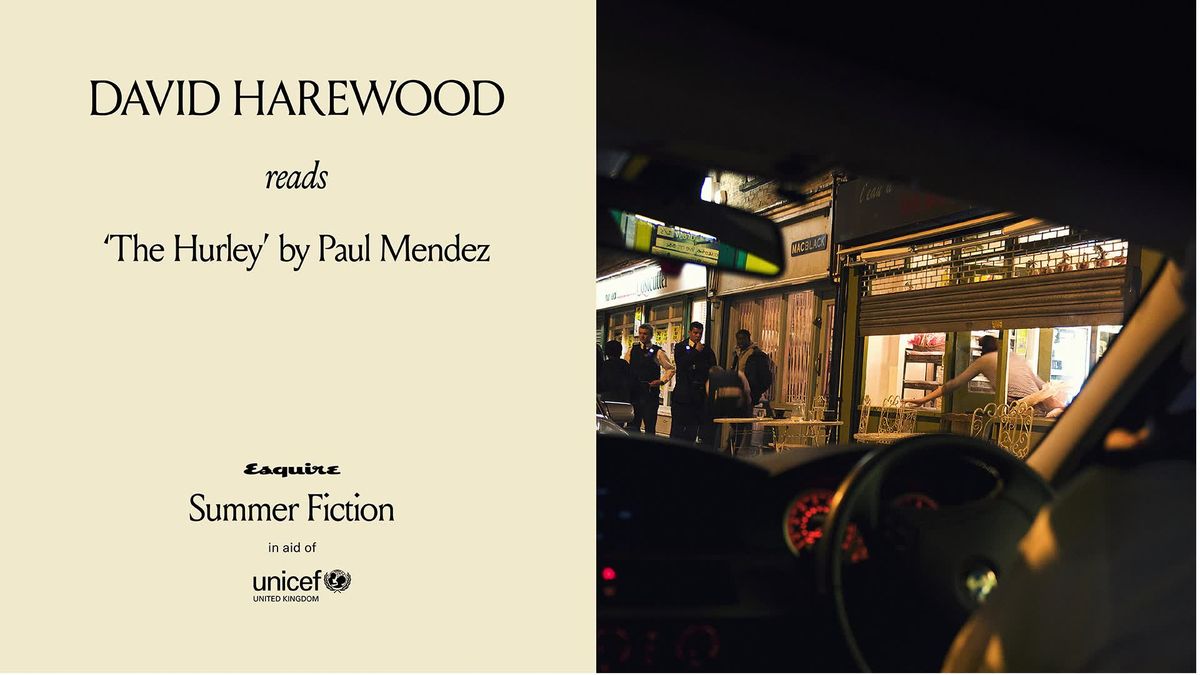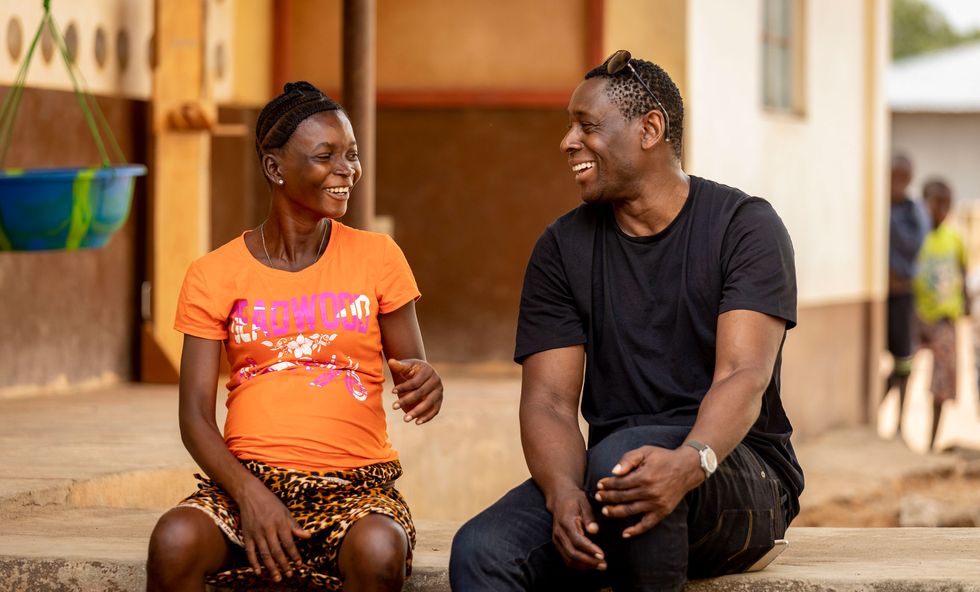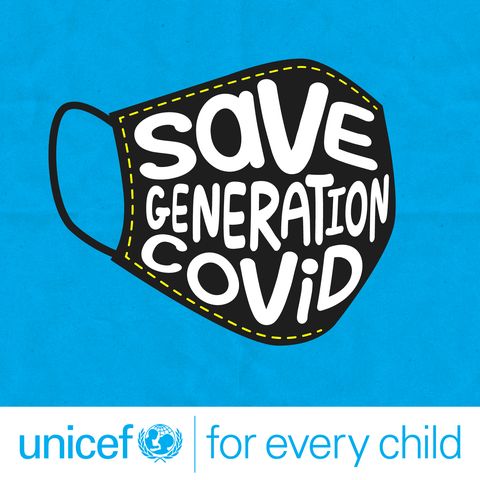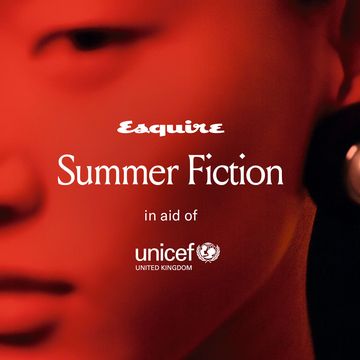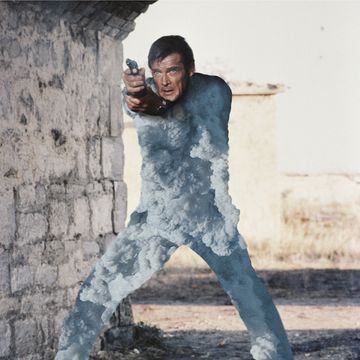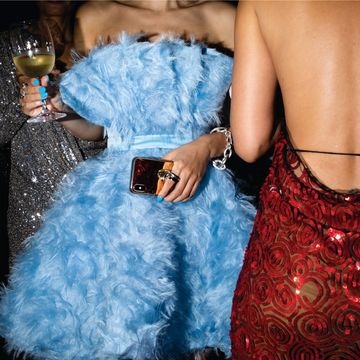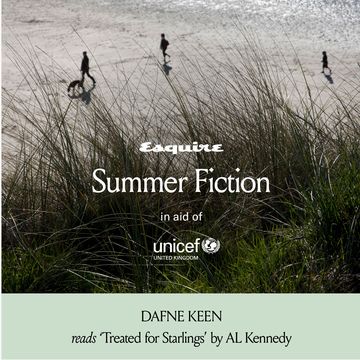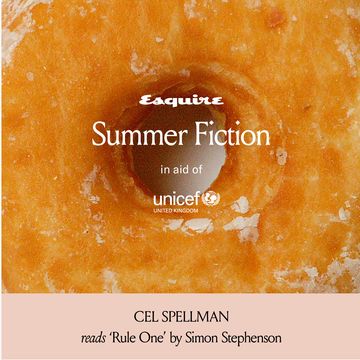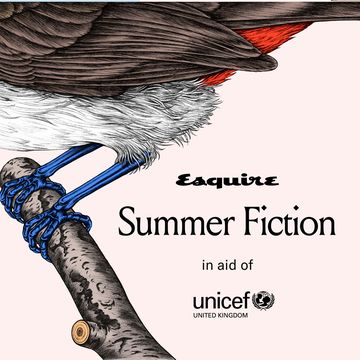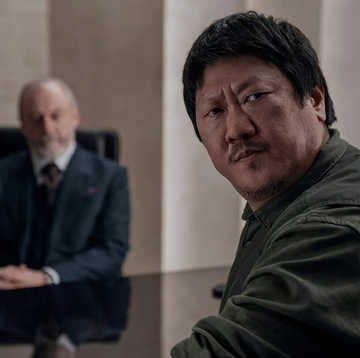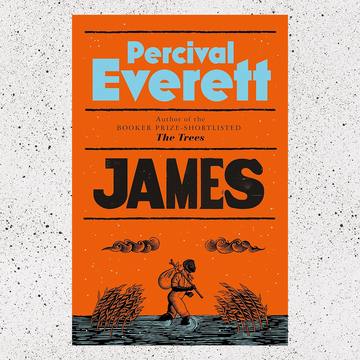Esquire's Summer Fiction series, in aid of Unicef UK, brings together some of the world's finest writers, and greatest actors, for a collection of original stories and readings that offer, we hope, a ray of light in these dark times, as well as the chance to raise funds for Unicef's Generation Covid campaign. (Read Unicef ambassador and Esquire editor-at-large Andrew O'Hagan's piece on why the campaign is so vital here).
Where a child is already experiencing hardship, outbreaks of diseases bring a new emergency to an already precarious situation. This is the story of Generation Covid. For vulnerable children all over the world, it poses the biggest threat since the Second World War. Please enjoy these stories, then visit Unicef UK's Generation Covid page to donate and hear a special message from Unicef UK High Profile Supporter David Harewood.
DONATE NOW
Audio: read by David Harewood
To listen, click 'Unmute' in the video at the top of this page. Alternatively, listen and download on SoundCloud, or listen on YouTube.
'The Hurley' by Paul Mendez
Josiah and Doris, both in their twenties and dressed in black cotton basics, had just finished work. It was almost midnight on a Tuesday in early September, and they were sitting on stools on the pavement outside their restaurant, smoking cigarettes and drinking tumblers of house red wine. Another waiter, and two bartenders, were finishing off last bits inside, closing down the glasswasher and counting out the cash tips while dancing to Kelela’s “Rewind”. The duty manager could be seen through the window popping his head up from the office to ask them to turn it down a little, after recent complaints by local residents about the thumping bass during closedowns.
Doris, tiny, from Barcelona, usually enjoyed a spliff after work but had run out of weed and was busy texting around to find some when a beggar approached, and in a soft voice, stooped to ask if either she or Josiah had any change. They shook their heads and apologised with tired half-smiles as they put their phones in their pockets. Homeless people were a common sight on Hackney Road, and it was the restaurant’s policy never to give them anything, just in case they got used to the charity and couldn’t be gotten rid of.
“In all honesty, I’m skint,” said Josiah, still living with his mother, a nurse, in his childhood flat on the former Murder Mile, unlike almost all of their neighbours from that community and time, families splintered by crime, innocent young deaths, a predatory housing market, gentrification, and on a positive note, vastly different opportunities for successive generations.
“Here,” said Doris, when the beggar asked for the end of her cigarette, and once he took it from her, she rolled her eyes and wiped her fingers on her trousers. Josiah had almost a full 20-pack in his pocket, but as a deterrent to the beggar he crushed his end to nothing beneath his foot. The beggar started muttering his story to them, intoning nasally rather than shaping his mouth around actual words, tucking his chin in, even, as if to avoid imposing his breath on them.
He wore his white stubble fine and a beanie low over his brow. There was a style to him, Josiah drifted away to notice; his coats were grey and elegantly — almost fashionably — cut, and there was no odour to him at all. Perhaps he was some sort of provocateur or activist, rather than someone who had genuinely fallen on hard times, a delinquent through choice like the Tokyoites who sleep in blue tents in rejection of capitalism. Doris and Josiah humoured him by nodding where it seemed opportune, or when they recognised a word like “bank”, “council” or “arseholes”.
More interestingly, over the beggar’s shoulder Josiah saw a middle-aged white man walking up the road towards them waving a sporting stick in both fists. He didn’t look threatening, as Josiah could immediately see from the shape of his glasses that he was well-to-do and probably wore crisp white shirts for his day job, though right now he was dressed in khaki shorts, a Teenage Mutant Ninja Turtles T-shirt and flip-flops. He seemed more likely to be returning home from a casual dinner and pint at The Marksman than from a game of whatever the stick he was carrying was supposed to be for. Even when he raised it and brought it down so that its contact surface came to a rest between Josiah and the beggar at head height, positioned his feet hip-width apart and wiggled his bum as if he was about to take a golf swing, Josiah saw no reason for alarm. Surely it was just a fun, rich, white man graciously stooping down to involve the street kids in his tipsy reverie.
“Do not talk to this man,” the white man said, theatrically, in an American accent. The beggar escaped on tiptoe like a Scooby-Doo character, disappearing up a side street. Coming round to face Josiah and Doris, the American man’s fists gripped the long, polished, painted handle tightly. It looked too precious, this stick, to be risked on actual sporting activity, as if it had been plucked from a museum vitrine. Gucci flip-flops, Josiah saw.
“He’s been living on my street,” the American said, breathing shovels of air — due more, Josiah suspected, to cocaine consumption than physical exertion. “He will no longer be living on my street!”
This sort, 10 or 15 years ago, would’ve hunted in one of the Hills — Notting or Primrose — but now probably lived in some Pritzker Laureate-designed lightbox where once stood a dust-blackened Victorian terrace. His blond hair, darkening with age and silver at the temples, fluttered prettily in the late summer breeze. Josiah lit up fresh cigarettes, handing one to Doris. He remained as calm as the night air, smoking with one leg crossed over the other, rocking his foot. His audience unimpressed, the American turned away to follow the beggar.
“What are you doing?” Josiah laughed.
“That man has been living on my street for too long,” he said, coming back, as if to the local Neighbourhood Watch committee. “We’ve asked him kindly to move on but he just keeps on coming back. He’s a nuisance and it’s time for him to go!”
Josiah tapped the ash from his cigarette as the American moved again to follow the beggar. “‘Do you know what you look like, chasing a homeless man down the street with a hockey stick?”
The American spun round and raised his voice. “It’s not a hockey stick! It’s an antique... 36-inch... ornamental hurley!”
“Can you imagine what would happen if it was me doing what you’re doing?” Josiah called after him as he left them.
“Only in London,” Doris said with a head shake and a shoulder shrug as she took her phone back out.
“Only in Hackney,” said Josiah, exasperatedly. “Any luck?”
“No, I guess I have to wait till Friday. You sure you don’t know anybody?”
“I deleted all my numbers time ago,” Josiah said. “I used to just pick up from one of the road men round my block, but I haven’t smoked weed for time.”
“Honestly, do you think that homeless guy’s gonna be OK?” she sighed.
“Surely that dude’s not gonna try to mash up his poxy hurling bat or whatever he said.”
“What’s hurling, anyway?”
“I dunno,” Josiah said, throwing back the last sip of his wine.
“Wanna top-up?”
He didn’t. “Yeah, go on.”
The street had fallen oddly quiet; only a 38 bus and an Uber passed. He thought he might hear shouts and screams if the American actually was attacking the beggar. His phone buzzed in his pocket. Aunty Lorraine to their WhatsApp group: Three years anniversary since my life and soul, my baby Kareem, was taken away from me. He had all his life ahead of him, and was the sweetest, most loving son a mother could ever hope for. May he continue to rest in power always, and may God watch over all of you and keep you safe. She would have composed that message in Notes ready to send just as the clock struck midnight.
Kareem hadn’t been in the fight, but his younger cousin was, and he’d stepped in — simple as. Josiah — who did not see the fight but was nearby — and an ambulance arrived almost in an instant but Kareem died in hospital of his injuries. Their last words to each other were lost in yelps of agony. They had grown up together, since primary school. Their mothers had been childhood friends, and perhaps now were more like sisters, always in each other’s backgrounds as they went about their busy daily lives with full-time jobs, and as mothers, occasionally meeting for a Nando’s or a Costa.
Josiah and Kareem were only a month apart in age, both only-children, and even looked like brothers. Neither knew their fathers, so it was one of those quiet running jokes, with the glint of possibility, that they could have been. In any case, they were best friends. They had learned to smile the same way, found the same things funny, wore the same trainers, bookended the same star-sign, played video games together round each other’s flats and football in Victoria Park. Josiah did better in his exams, though Kareem didn’t do badly and started working as a barber after leaving school, while Josiah went to East London to study sports science.
He remembered the police, all in their dark blue uniforms, hats on, crowding London Fields that late summer evening very much like this one. He could still feel the weight and force of a policeman’s palm hit his chest, ordering him to “Go home!” The boy who did it, and his people, had long gone, and those who were left surrounding the paramedics — themselves shit-scared about who else might still be carrying a knife — had to decide whether they would tell or not.
An officer had phoned the initial report into his radio as if it was his tenth such knife-related incident of the day, and as if it was their job simply to sweep away the disruption rather than get to the bottom of a murder. “Non-white male,” began his weary description of Kareem. What did that even mean? Surely non-white could be anything? It was as if Kareem’s identity had bled out into the ground beneath him, leaving him racially indeterminate, judgeable only against white. Josiah looked down at his hands, soaked in his best friend’s red blood, already drying brown. He couldn’t hear after that, as if his ear canals had swelled closed. He thought he might die too; he and Kareem would be like those twins who sympathise with each other’s pain, one writhing in bed while her sister gives birth.
The police busied themselves shouting at everyone to go home, threatening anyone who argued with arrest. It was days, weeks before any statements were taken, by which time the truth took on fictional qualities, each viewpoint interpreted through growing malice. The boy who killed Kareem — a coke dealer’s runner — got shanked to death himself, eventually, by someone else, over something else, and so the chain continued.
Josiah ran home to tell his mother first, then they walked together to break the news to Aunty Lorraine, who wailed and clutched her stomach as if Kareem wasn’t already a big 20, as if he’d been snatched directly from her womb and slaughtered right there in her kitchen.
Three years. Kareem would still be cutting hair on Mare Street, but now Josiah worked on the reception desk at a gym, and was training part-time in physiotherapy, but still needed a second job as he was saving to buy a flat, though it felt as if he would have to work 24 hours a day for several hundred years before he might be able to afford a deposit, at least if he wanted to remain near his mum and her cooking.
Doris came back with their glasses, sat down, gave Josiah his and clinked. The American was back, apparently sober, dangling the gaudily painted stick down by his side.
“Hey, what happened to the homeless man?” Doris asked him as three police cars approached behind. No sirens or lights, Josiah noted, as the cars parked right in front of them, turning the pavement into a stage. Doris and Josiah lit up another fag each and shuffled their bums on their stools, anticipating the adrenalin surge of an arrest. Several officers, minus their hats, got out of the cars and tucked their hands into their vests. A blond one approached the American, who’d turned around to face them.
“Sir,” the officer mumbled flatly. “We’ve received a report that a man fitting your description has been seen wielding an offensive weapon with intent to cause harm. I’m afraid we’re going to have to restrain you.”
The drunk, possibly coked-up, expensively bespectacled American, chasing an elderly beggar down Hackney Road with an ornamental wooden stick plucked no doubt from a porcelain umbrella stand in his hallway, hadn’t realised that somebody was watching him and calling the police, or that he would’ve drawn the attention of any number of neighbours crossing over to a bare window, or inching open a Venetian blind, to see what the commotion was so late on a Tuesday night. Perhaps they had heard him shout: “He will no longer be living on my street!”
The officer crept around the back of the American, carefully retrieving the hurley and passing it to a colleague, who stood admiring it in her hands. The blond officer produced a set of cuffs and applied them to the American, who was compliant. A third officer was talking into his radio, walking away from the scene. Once he’d finished, Josiah got up and approached him.
“So I work here, in this restaurant, and me and my colleague were just sitting here having a glass of wine and a cigarette, as we usually do when we’ve just finished work” — the policeman thickened his neck and glared at Josiah — “and this homeless guy approached us to ask us if we had any change, and…”
“Yeah?” the officer sneered. “Why don’t you go back inside.”
Until Kareem’s murder, Josiah had never had any trouble with police in his life, even during the worst times when it was almost harder to sleep without the lullaby of sirens in the middle distance, or blue night lights illuminated in his curtains, but he was still scared of them, and talking to them made his heart race, so despite his frustration, he obediently turned away to Doris.
“But I wanna see what happens,” she said, looking up at him like a reprimanded child.
“We’ll look through the window,” said Josiah. They went back into the restaurant but he left the door slightly open so they could hear, and Doris waved at one of the bartenders to turn down the music even further. While the police officers stood off him, the American said, “I’m under so much stress right now and that man’s not helping. What are you guys doing about him? I have to protect my family. Homelessness is a terrible problem and I try to buy the Big Issue but it’s not something I personally wanna deal with on my doorstep. I work really hard. I bring money into this neighbourhood. You have to understand…”
Josiah thought about Eric Garner selling individual cigarettes on a New York street, unarmed. I can’t breathe.
Seething, Josiah told Doris: “If that was me with the bat, drunk, coked-up and threatening to skull an elderly homeless man I was bored with, I’d be face-down with a broken nose, dislocated shoulders and cracked ribs, choking on my own blood!”
“But that would never happen,” she said. “You would never do something like that…”
Because he wasn’t that type of black guy, like Rashan Charles, perhaps, who’d recently died after a police arrest in this same borough — verdict: accidental death. Josiah was a good boy who lived with his mother, worked two jobs and eschewed drugs, and that was why he was still alive — not that Kareem had been any different. He thought of the American’s sheepish body language as he slowly walked back from his pursuit of the beggar, presumably bound for his precious lightbox — did it occur to him at any point to run? If he made the decision to walk slowly was it because he feared getting chased and maybe even shot? He wasn’t wearing a hood; it would be clear from any angle or distance that he was a well-to-do white man.
Josiah took out his phone and surreptitiously took a couple of photos, which came out blurred, because he was trembling as the American was told off, rather than cautioned, for possession of a weapon with intent to injure. At least that suggested the beggar had escaped unhurt. The American was nodding his head to whatever advice the officer who’d been speaking into his radio was giving. One of the officers drove away from the scene, and the blond one released the American from his handcuffs.
The duty manager came upstairs from his office and asked Josiah and Doris what was going on. With the rest of their colleagues, they all went out onto the street to smoke and watched the American, his antique hurling bat returned to him, walk away with his head down.
Paul Mendez says:
"This story came about from an incident I witnessed in 2017. I sat outside the Hackney restaurant I waited tables at, after work, when a well-to-do-looking American approached and started swinging, with a laughable antique 'weapon', for a homeless man who had stopped to ask me for change. The American chased the homeless man away, and on returning, was pursued by police – car lights and sirens off – who did what they had to do by law and with some reluctance.
"But it got me thinking about how that situation might have played out if the American – well-to-do or not – was black. Would the police have treated him the same way? How would it tally with experiences Josiah – a humble and intelligent young black man, Hackney born-and-bred – had had with police? Around the time I wrote the original notes, Rashan Charles died after being chased down by police, and the deaths of Eric Garner, Michael Brown and Tamir Rice were all fresh in my mind.
"Several weeks after I wrote ‘The Hurley’, George Floyd was arrested and murdered by police after attempting to pay for cigarettes with a counterfeit note (we’ll never know whether he knew it was fake or not). Compare this to the way Dylann Roof was allegedly escorted to Burger King after shooting dead nine African-American churchgoers at the Emanuel African Methodist Episcopal Church. I wrote ‘The Hurley’, then, to focus the black gaze on the way police go about their treatment of white men, and black men."
This story appears in the July/August issue of Esquire.
SUBSCRIBE NOW
Paul Mendez is a contributor to the Times Literary Supplement as well as the Brixton Review of Books. His recent novel, Rainbow Milk, is one of the Observer's Top 10 Debuts of 2020.
David Harewood’s career as actor has spanned over 30 years. He starred alongside Leonardo DiCaprio in the Oscar nominated Blood Diamond, and went on to play David Estes in Homeland alongside fellow Soccer Aid for Unicef player Damian Lewis. He was proudly appointed a Unicef UK High Profile Supporter in December 2019, in recognition of two years’ active support for Unicef UK programmes.
